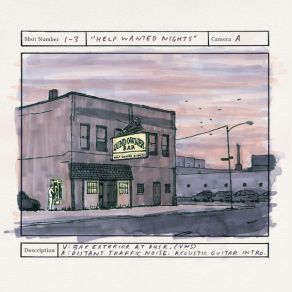Help Wanted Nights
Download links and information about Help Wanted Nights by The Good Life. This album was released in 2007 and it belongs to Rock, Indie Rock, Alternative genres. It contains 11 tracks with total duration of 42:59 minutes.

|
|
|---|---|
| Artist: | The Good Life |
| Release date: | 2007 |
| Genre: | Rock, Indie Rock, Alternative |
| Tracks: | 11 |
| Duration: | 42:59 |
| Buy it NOW at: | |
| Buy on iTunes $9.99 | |
| Buy on Amazon $9.49 | |
| Buy on Songswave €1.13 | |
Tracks
[Edit]| No. | Title | Length |
|---|---|---|
| 1. | On the Picket Fence | 3:33 |
| 2. | A Little Bit More | 3:23 |
| 3. | Heartbroke | 1:56 |
| 4. | Your Share of Men | 2:32 |
| 5. | You Don't Feel Like Home to Me | 4:40 |
| 6. | Keely Aimee | 3:30 |
| 7. | Playing Dumb | 2:17 |
| 8. | Some Tragedy | 3:44 |
| 9. | So Let Go | 3:54 |
| 10. | Rest Your Head | 10:44 |
| 11. | Househunting (Bonus Track) | 2:46 |
Details
[Edit]Four albums in, Tim Kasher is still not set on the direction he wants his side project, the Good Life, to take. He's already toyed with indie electronica bleeps and emo howls, and now, on Help Wanted Nights, he heads toward more singer/songwriter territory, not ditching the full band but using it sparingly, his acoustic guitar the most prominent instrument besides his voice. There are definitely moments of Saddle Creek alt-country, the label that houses both the Good Life and Cursive, heard in the electric guitar, the organ, but the record is what Kasher knows best, indie rock, hinting at Pavement and Sebadoh and even Bruce Springsteen. The songs on Help Wanted Nights are all solid, simple, yet melodic, about running away from home and trying to find home and breaking up, but nothing really stands out. "Heartbroke," sly and quirky, is certainly fun, but it hardly compares to any of the tracks on Album of the Year, let alone Kasher's work with Cursive, and while "Rest Your Head" is nice, Neil Young-y and sweet, it doesn't do much but fade out slowly, nearly ten minutes' worth, into the background. On their last album, the Good Life seemed focused and smart, composing a record that worked both as an entity and as 12 separate pieces, but Help Wanted Nights lacks both the overall vision (despite the fact it was originally meant to be the soundtrack to a screenplay) and individual strength and clarity, the lyrics hinting at cleverness and profundity without ever reaching them ("See, Keely, I love your suffering/Like gravity loves a stumbling drunk," he sings in "Keely Aimee," then going immediately back into trite expressions of obsession and longing and love). Certainly not an embarrassing or even poor effort, but Kasher is not living up to his potential here, needing some more help of his own, perhaps, to get everything back to where it could, and should, be.